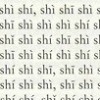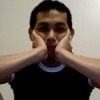Jason S Polley’s “Constituent Command” [Read the poem here] (First published in Issue #25 of Cha)
-This post is written by Zabrina Lo.

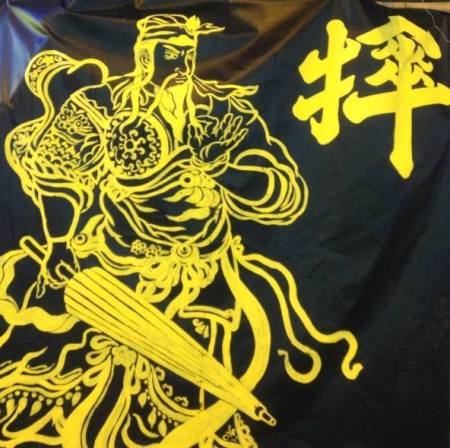 photograph by Jason S Polley
photograph by Jason S Polley
On 30 December 2014, I was watching with my family “Hong Kong Review 2014” on TVB Pearl, which began with the comment ‘2014 was a year of political reform’. Our initial response to the report was not an extended political discussion, but we did have quite a debate on whether it was wise for the summary of the Umbrella Revolution to take up about half of the show. The Revolution was not the only momentous thing, among many, that had happened in Hong Kong! Some of us remarked. Yet to me, a report of such unprecedented length suggested how undeniably significant the Revolution had been in the political history of Hong Kong. There was an outburst of political voices from numerous figures in our society – the student unions, the campaign organizers, the protesters in general, the parents and friends who became erstwhile friends or enemies, the government of course, the business sector, the transport sector, the professions and so on. Likewise in the domain of Hong Kong poetry, there was also an outburst of anger and desperation in many poems about and inspired by the Umbrella Revolution written by poets from all walks of life. I was reading the poems published under the title “Whither Hong Kong?” in Cha. I was expecting to be moved by some powerful lines or words, but in the end I was surprised that what hit me the most was an ungraspable feeling of irony. ‘Kei sat’, it was also a comical and satirical reflection mixed with a taste of subtle bitterness of losing a friend. Actually, maybe it was an honest confession of all such feelings in “Constituent Command” by Jason S Polley.
The appealing aspect of the poem comes from a sentimental tone to share a slice of his personal life. It starts off with ‘I have this friend / Former friend / Actually’. The topic is a very common one in life but at the same time it is unique to the poet. Unlike a lot of poems about the Revolution, the words in the poem are not condescending, academic or complicated. It is a confession from the poet to any reader. Yet, his willingness to share his personal life with the world transforms the Umbrella Revolution, which, by its nature is a political event, into a personal issue that does not only involve politicians, but also local citizens and international individuals who care about it and are interested in knowing more about it. This sensitivity in tone demonstrates the personal understanding and feeling of the Umbrella Revolution. It captures accurately what I believe to be the essence that brings most campaign participants together – the same lofty aim of pursuing democracy even if they may not know one another. At one moment, they become ‘friends’, they become one.
Ironically, through this conversation with his ‘new friends’ with whom he shares his story, the poet talks about the loss of a friend. Like the poet, I have had friends ‘unfriending’ each other on a lot of social media such as Facebook as they cannot accept each other’s political viewpoints regarding the Umbrella Revolution. Our society becomes so polarized, things become inexplicable and even peculiar. There are a lot of things about friendship that I am unable to comprehend since the Revolution. In the case of my friends, one of them ‘unfriended’ the other silently through Facebook but still talked to each other normally whenever they met as if nothing had happened. What is the point of ‘unfriending’ the others, and secretly, then? If Facebook represents what they think innately for they dare not reveal their thoughts outwardly, then does it mean that friendship has always been fake in our actual world? Has my understanding of friendship been wrong all these years? What is friendship? For what reason can individuals truly become friends? The poem echoes my thoughts: ‘Let’s actually return to the reason / The reason for the friendship forsaken’. In doing so he reflects by trying to decipher and make sense of the ‘reflection’ (‘pihsdneirf nekasrof eht rof nosaer ehT’), which unfortunately, seems hard to make sense of. One of the ‘keywords’ to sum up this realization of the actual relationship is ‘aken’ (from ‘forsaken’). The form of the word itself is shattered, which signifies the shattering of friendship. More significantly, the poet realizes that the action of forsaking friends is not just a single moment in the past (‘forsook’), the breaking up of the relationship is eternal (‘[fors]Aken’), the pain will linger on (‘Aching’). The first section of the poem is connected throughout by the graspable and ungraspable confusion – befriending strangers and unfriending friends, being blind and awake, making sense of things and creating greater complexity, shattering words and connecting feelings. All these are stirred up, created, made possible because of the reflective sense of the vocabulary ‘kei sat’. It is a common Hong Kong word that reveals what is beneath the apparent – the truth, if there is any.
Another element that appeals to me most is the sense of belonging imparted in the second part of the poem. There is a contrast in how people define their senses of belonging to Hong Kong – between the nominal identity as Chinese and the actual feeling of being a part of the city. First the poet questions the implication of the name of this city – ‘special administrative region’. This specialness lies in the unique Cantonese dialect which is ‘in danger’, presumably due to the promotion of Mandarin as the official language in Hong Kong at the expense of the local tongue. The coinage ‘special administrative region’ is nothing but just a name, what is truly special has to be felt in the poet’s five years of residence in Hong Kong. Similarly, when he reflects what it means to be a local, he realizes that even though he only speaks English in Hong Kong, he knows much more than some of those who speak Mandarin in Hong Kong. Officially, the latter are Chinese people and who supposedly, ‘nominally’, should know the basic yet important things about Hong Kong. He satirizes their ignorance by depicting how they mistake CY Leung, the Chief Executive of Hong Kong, for ‘See Why Long’ and mix up his gender. The Mandarin speakers in Mong Kok mentioned in the poem witness the Umbrella Movement but they have no idea what they are seeing. The poet explains and defines, to readers, his true identity as a Hong Kong citizen for he does not only see what is happening in the city, he actually lives in the city and understand its pulses. He does not rely on the title ‘Chinese’ or ‘Hong Kong citizen’ to define himself as such. If the nominal way of treating things prevails in society, what about democracy? What is democracy then? This is his answer:
‘An irony schmirony symphony
A coughing choir cacophony
A conservation that kills
Pandas in plexiglas prisons prefer not to procreate’
It becomes an ironic, schemed celebration of the idea that deprives the freedom of the Chinese mascots, which symbolize Chinese people, in the name of protection. There is nothing the ‘pandas’ can do if they hope otherwise but to end their helpless fate by not continuing their lives. A ‘requiem’ of the mind, so to speak.
Yet, to the poet there is still a glimmer of hope. The idea of ‘defence’ paradoxically juxtaposes with the words ‘peaceful’, ‘passive’, ‘pacific’ and ‘polite’, but this highlights the struggle between the ‘cold elites’ and ‘the cleaner publics of street-sweeps’. Umbrellas become a symbol, a force that ‘resist[s]’ the nominal democracy for the people to ‘exist’. To the poet, there is life in the requiem, the death. Similarly there is hope for democracy, as long as there are those who are ‘actually… / umbrellaing’.
With the fold of the Umbrella Revolution on 15 December 2014, there are those who claim that the uprising was a failure as no tangible changes to the political leader election system has resulted. However, there are those who argue that the revolution is a victory since it has ignited people’s courage to fight for democracy. Either way, Hong Kong poetry has witnessed a triumph in the recording and portrayal of this historic event in Hong Kong with very powerful weapons – words and ideas. “Constituent Command” is unlike a lot of Umbrella Revolution poems which are composed of passionate words as well as complex and colourful imagery. This poem captures the thoughtful reflection of friendship as a result of the uprising, the sense of belonging to a home called Hong Kong and the actual meaning of democracy. The poem delivers a generous amount of content with a powerful manipulation of the tones and literary devices. It is comical and tragic at the same time, demonstrating the poet’s sensitivity to both literary expression and the humanity engendered in the Umbrella Revolution in Hong Kong.

 Jason S Polley is Associate Professor of contemporary fiction at Hong Kong Baptist University. He completed his PhD at McGill University, Montreal, in 2007. His research interests include Irish fiction, postmodern literature, comix and graphic novels, post-structuralism, and contemporary Indian fiction. He has published articles on women and property in John Banville, the Jonathan Franzen and Oprah Winfrey debacle, slum ideology in District 9, media machination in Watchmen, and critical race theory in Jane Smiley’s The Greenlanders. His monograph is titled Jane Smiley, Jonathan Franzen, Don DeLillo: Narratives of Everyday Justice. He has two creative nonfiction books: a short-story collection, Refrain, and a literary journalism novella, Cemetery Miss You.
Jason S Polley is Associate Professor of contemporary fiction at Hong Kong Baptist University. He completed his PhD at McGill University, Montreal, in 2007. His research interests include Irish fiction, postmodern literature, comix and graphic novels, post-structuralism, and contemporary Indian fiction. He has published articles on women and property in John Banville, the Jonathan Franzen and Oprah Winfrey debacle, slum ideology in District 9, media machination in Watchmen, and critical race theory in Jane Smiley’s The Greenlanders. His monograph is titled Jane Smiley, Jonathan Franzen, Don DeLillo: Narratives of Everyday Justice. He has two creative nonfiction books: a short-story collection, Refrain, and a literary journalism novella, Cemetery Miss You.

 Reihana Robinson is a writer and artist and organic farmer living on the Coromandel in Aotearoa/New Zealand. Her writing has been published in the USA, Asia and New Zealand. Aue Rona is the title of her first volume published by Steele Roberts, NZ 2012. Cutthroat, Landfall and Takeahe are a handful of literary publications to carry her work. Anthologies include Te Ao Marama and Notes to the Transalators. Contact: reihanarobinson.co.nz
Reihana Robinson is a writer and artist and organic farmer living on the Coromandel in Aotearoa/New Zealand. Her writing has been published in the USA, Asia and New Zealand. Aue Rona is the title of her first volume published by Steele Roberts, NZ 2012. Cutthroat, Landfall and Takeahe are a handful of literary publications to carry her work. Anthologies include Te Ao Marama and Notes to the Transalators. Contact: reihanarobinson.co.nz 
 Nicholas Francis is an Anglo-Welsh writer based in Tokyo. His work is interested in exploring the borders between the modern and the pastoral, the formal and the formless. He has been published in a number of poetry journals including The Delinquent, Obsessed with Pipework, Parthian’s Nu Anthology and Cardiff-based Square. He is currently working on a first collection as well as translating a number of Japanese poets into English.
Nicholas Francis is an Anglo-Welsh writer based in Tokyo. His work is interested in exploring the borders between the modern and the pastoral, the formal and the formless. He has been published in a number of poetry journals including The Delinquent, Obsessed with Pipework, Parthian’s Nu Anthology and Cardiff-based Square. He is currently working on a first collection as well as translating a number of Japanese poets into English. Anuradha Vijayakrishnan was born in Cochin, India. She completed her Bachelor’s in Chemical Engineering from Calicut University, Kerala and her postgraduate studies in Management from XLRI, Jamshedpur. A trained Carnatic singer, she lives in India/UAE and pursues a full time corporate career while writing both fiction and poetry. Her work has appeared in
Anuradha Vijayakrishnan was born in Cochin, India. She completed her Bachelor’s in Chemical Engineering from Calicut University, Kerala and her postgraduate studies in Management from XLRI, Jamshedpur. A trained Carnatic singer, she lives in India/UAE and pursues a full time corporate career while writing both fiction and poetry. Her work has appeared in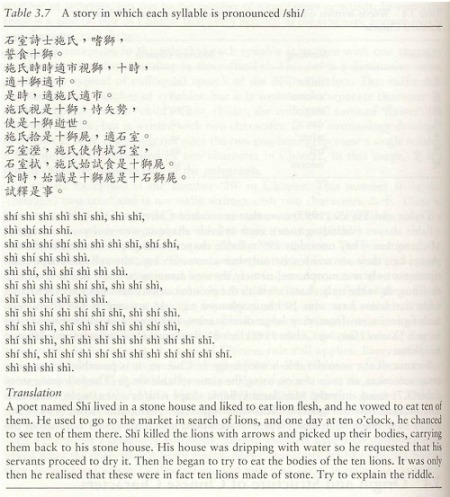
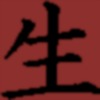 Red Slider
Red Slider



